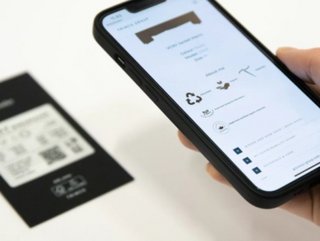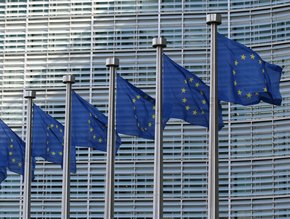Trimco helping fashion industry catch up to ESG compliance

Tell us a little of yourself
My connection with the fashion world is rather unusual. With a degree in industrial engineering, I have always been fascinated by the possibilities technology opens up to strengthen and grow businesses, fashion included.
I have an extensive background in management consultancy, and before joining Trimco, almost a decade ago now, I worked as a consultant at Accenture, where my focus was on business transformation, finance and performance management, enabled by technology and innovation.
What does Trimco Group do?
Trimco specialises in designing and manufacturing brand identity and supply chain traceability solutions for the apparel industry, including some of the world’s best-known fashion and activewear brands.
We provide innovative product designs and production techniques, manage and advise on care label regulations for international markets and operate world class logistics centres.
The group has 1,700 employees in 21 countries, and we serve 800 brands and 8,600 manufacturers around the world.
Who are Trimco’s customers?
Our customers are predominantly apparel brands, including some of the UK and world’s best-known fashion and activewear brands. We also cater to various other industries, including footwear and home textiles, and our RFID solutions are available for an even broader spectrum and industries.
Why does fashion have such a poor ESG record?
In the past several years, litigation and stakeholder activism in the ESG space has focused largely on the energy and resources sector. With ESG-related litigation globally on the rise, and an ever-increasing urgency to reach net zero sooner rather than later, the spotlight is now being shone on other industries, including fashion.
The sustainability challenges for the industry are multi-faceted, but some of the deepest-rooted issues lie in the nature of the fashion business model, especially for fast-fashion brands.
Fashion is a seasonal and trend-driven industry and it thrives on the consumer’s constant desire for ‘something new’. Many fashion businesses operate based on a model and corporate purpose which is driven by profit. As such the industry has also developed complex global supply chains, which are hard to monitor and manage. This is where supply chain tracking and monitoring tools (such as our own Product DNA solution) become very important.
How much has fashion got to do to catch up on ESG?
The fashion industry still has a long way to go, but in comparison to some other industries, progress is happening quite quickly. It has to. Consumers demand it and our resources are finite so for our industry to thrive we need to find a better way to work, fast. And as a company that delivers trims, care labels and packaging solutions, we encourage and support brands to extend their efforts beyond garment or footwear production.
A sustainable mindset includes every single part of a product, from hangtag and shipping box to fabric materials used and overall brand environmental impact. We can surely help with some of it.
What is Product DNA?
This is a supply chain transparency and traceability platform but it does more than that. It is designed to serve our customers’ needs for tracking, managing and communicating their sustainability and social compliance claims, all in one place. The rise of both social and environmental due diligence actions are visible around the world. These include: EU strategy for Sustainable and Circular Textiles; Norwegian Transparency Act; German Supply Chain Due Diligence Act; and the New York Fashion Act.
These all demand compliance, and Product DNA helps with this.
How does ProductDNA work?
Product DNA combines the forces of three solutions in order to help our customers monitor and achieve their sustainability goals:
• Certificate Manager module to collect Scope 3 certificates across the entire supply chain
• Sustainability Track & Trace module, to measure and report globally on specific social and environmental KPIs
• QR Code solutions for on-product communication
Product DNA can be customised to every company’s ESG goals. As part of the solution, brands can measure the use of different sustainable materials in their collections by weight or by piece.
It allows brands to monitor their ESG performance by comparing year-on-year progress or against ESG targets. The platform also links the usage with the garment factories’ scope and transaction certificates to substantiate the Brand’s ESG claims.
The tracing technology enables brands to measure the amount of sustainable fibres and materials they put into the market. The tracking technology also allows for easy management of garment factory ESG certificates.
Depending on the brand’s strategy, ESG compliance transparency can go from tier 1 suppliers (garment factories) all the way to tier 4 (raw material suppliers). For brands that require a more detailed analysis, reporting on greenhouse gas emissions and other specific environmental measurements is also possible.
What's the future for sustainability in fashion?
Transparency and accountability are becoming much more important, both from a legislative point of view and for the consumer. How brands communicate sustainability credentials and initiatives to the consumer is also of the utmost importance as brands need to build trust and loyalty.
The new generation of shoppers has completely new demands as to what it means to be an end-to-end sustainable brand. We see a rise in the adoption of QR codes as a way to better communicate and interact with the end consumer and reduce the use of label material and we believe that is a great start. We have already supported brands that have implemented similar strategies that include QR codes, with great success. Circular business models simply won’t be optional in the future of our industry, and the sooner they are implemented, the better
Who inspires you?
Miranda Kong, Founder and Chairman of Trimco Group, who started the business in Hong Kong 44 years ago from her apartment. The fact she treats all suppliers and employees as valued partners is inspirational.
Best advice ever given?
The only limit to your impact is your imagination and commitment. Do not underestimate yourself and every individual’s power.







